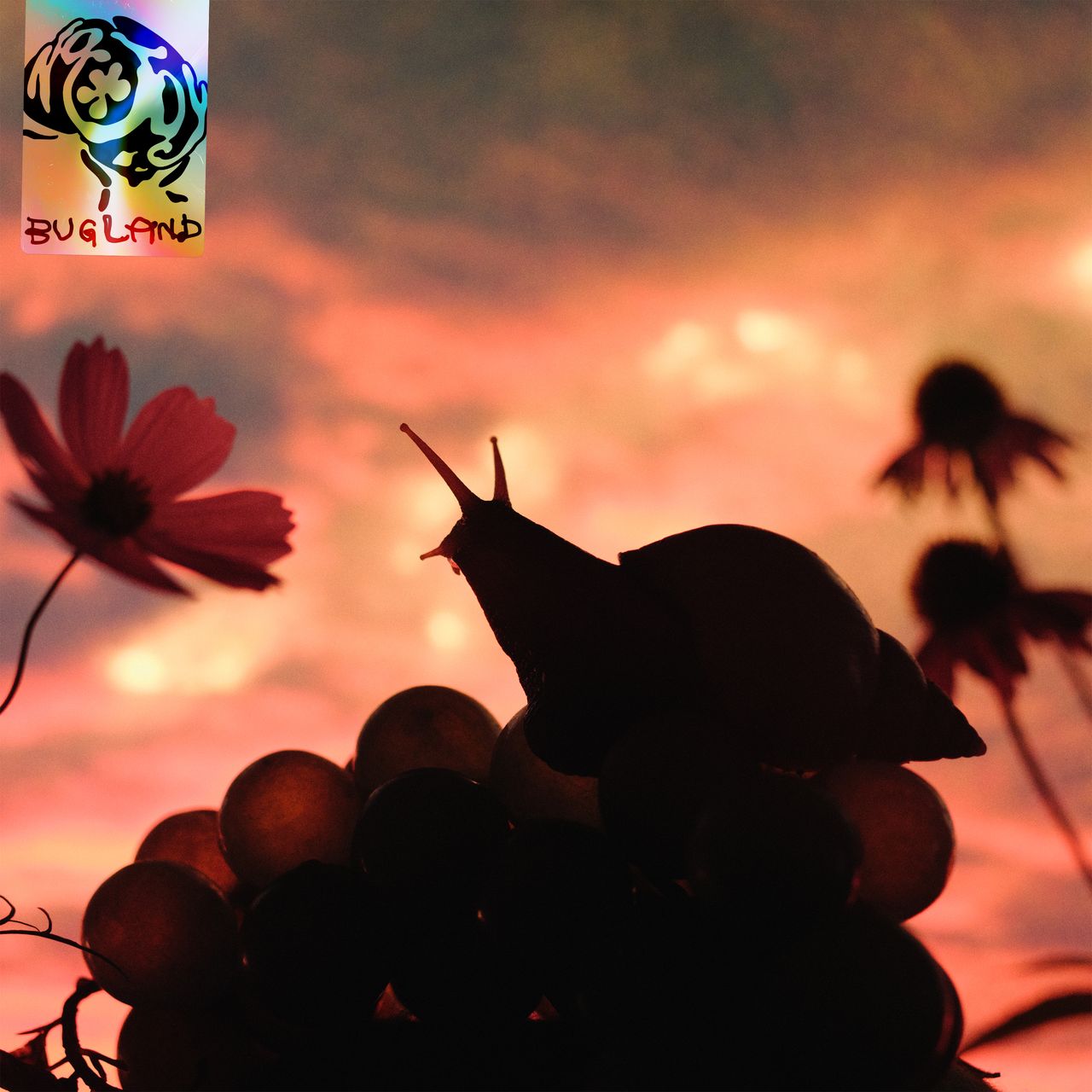Remember the days of the seven-string guitar? Even if you weren’t alive then, you surely have an image of what it felt like to be young in the years between 1995 and 9/11—between the death of Kurt Cobain and the supposed death of irony. Every popular rock band had a guy who wore contact lenses in unnatural colors and another who wore bucket hats. Girls displayed their whole thoraxes between low-cut jeans and tiny babydoll tees. Everyone wearing Black Flys sunglasses, everyone’s tongue stained the nuclear yellow of Surge. Buying a Slurpee and trashing a 7-Eleven were the acts of Byronic heroes living life to the edge, or at least to the edge of the suburb.
Bugland, Jasamine White-Gluz’s first album as No Joy album since 2020’s Motherhood, lives in this memory. Many albums do in 2025, as fantasies about the supposed freedom and joy of the Clinton era reach their fifth year en vogue. The difference is that Bugland knows that it’s living in a memory. With its title like something a precocious kindergartener would name a theme park, it is self-consciously a construction, and because of that, it knows that its radio-glossed guitars and scrolling pink mists of noise aren’t artifacts to be considered but elements that can be molded and sculpted like so much Floam. Bugland is at once a perfect album for our current shoecraze and unlike any other record alongside which it might be discussed. It’s poignant, yes, and full of wonder; you will find many vistas at which you might gawp and abysses into which you might weep. But its friendly relationship with the past means that Bugland’s litter of sound is, more than anything, fun. It’s so fun.
Bugland’s hundreds of little delights should come as no surprise, nor should White-Gluz’s ability to rewire memory’s nostalgia trap into a present-day source of energy. On Motherhood, she enlisted slap bass and jewel-toned early-’80s keyboards—as well as guitarist Tara McLeod, from nü-metal first-wavers Kittie—to navigate the unsolvable labyrinth of birthing. For Bugland, she and experimental musician Angel Marcloid (aka Fire-Toolz) expand Motherhood’s palette and range, making the latter feel tidy and subdued in comparison. Consider it Imaginal Disk’s older sister.
That hyper-maximalist approach might make Bugland feel like an annoyingly complicated Magic Eye image if White-Gluz weren’t such an expert arranger. Her songs tend to be thick and sedimentary, and part of her skill lies in eroding those layers a little bit at a time. About halfway through opener “Garbage Dream House,” lost among overlapping clouds of synth, chewed-up digital mash, and thick-cut Butch Vig guitars, White-Gluz sings with a pleasantly distant gaze. Breakbeats idle like they’re reluctantly crouched at the starting line, cotton-candy-colored semi-drones fill the space, and as a snare calls the song to attention, it explodes into something as big and cathartic as “Ray of Light.” In the title track, she slaps riffs up on the wall like stickers on a locker while a slurry of liquid static fills the space around a shuffling drum machine.
